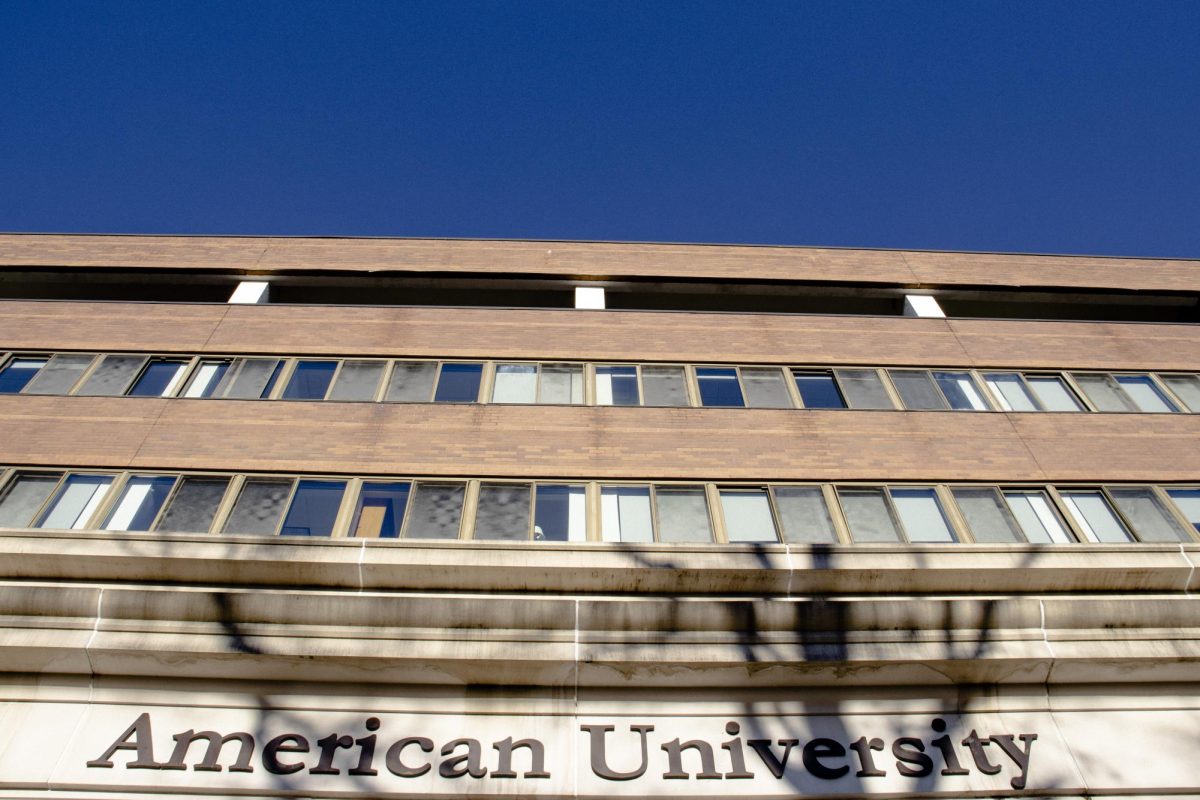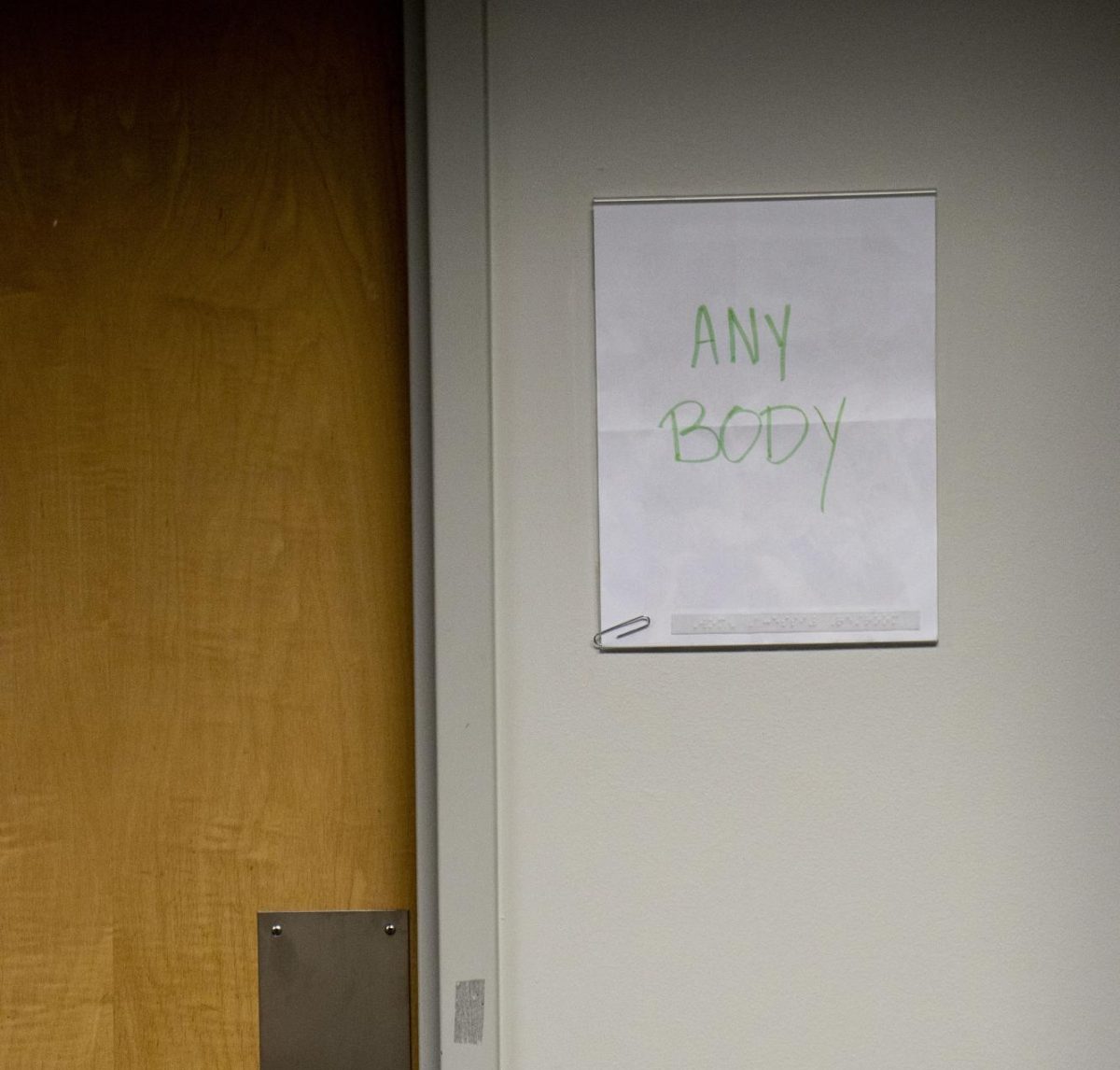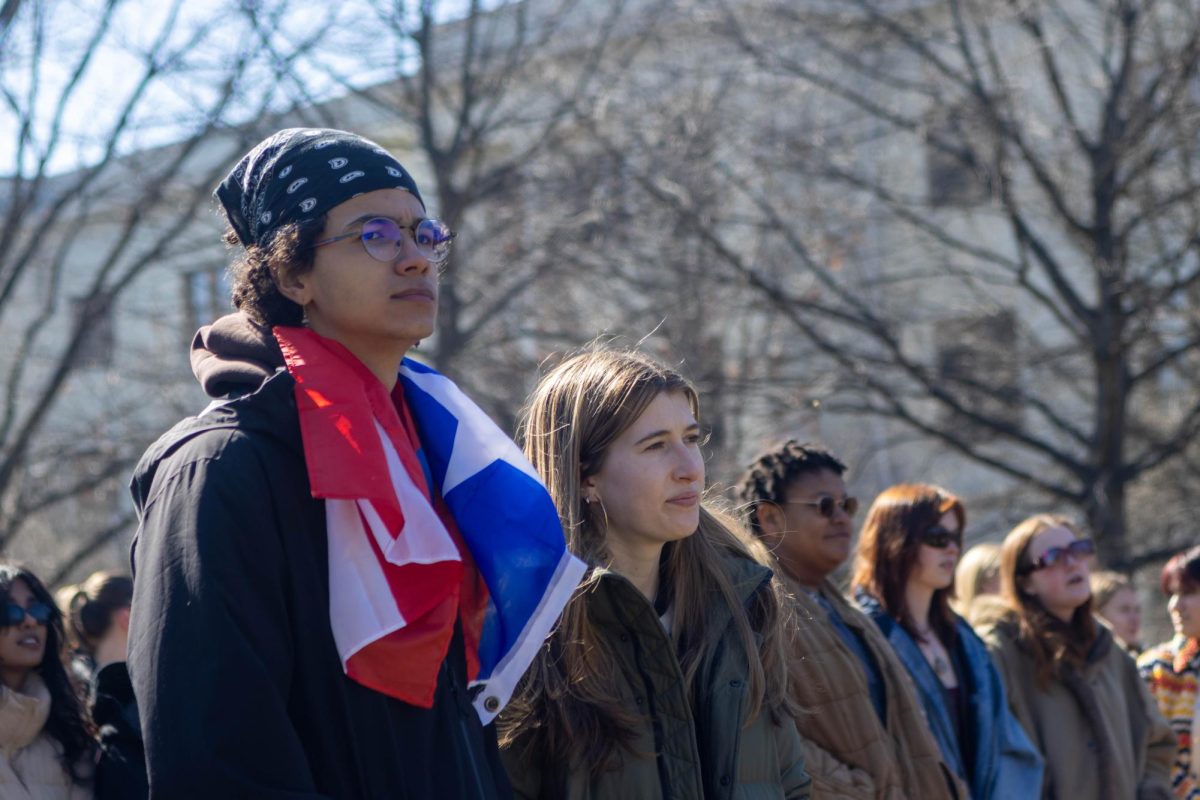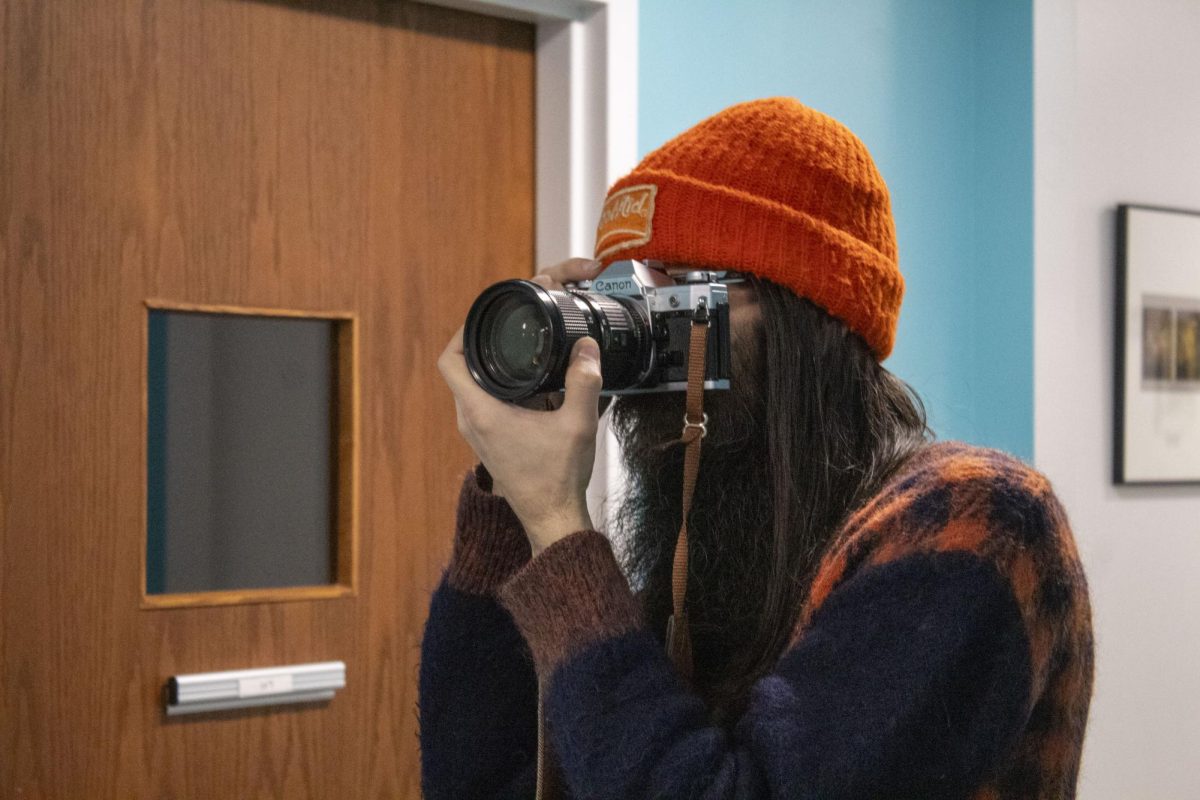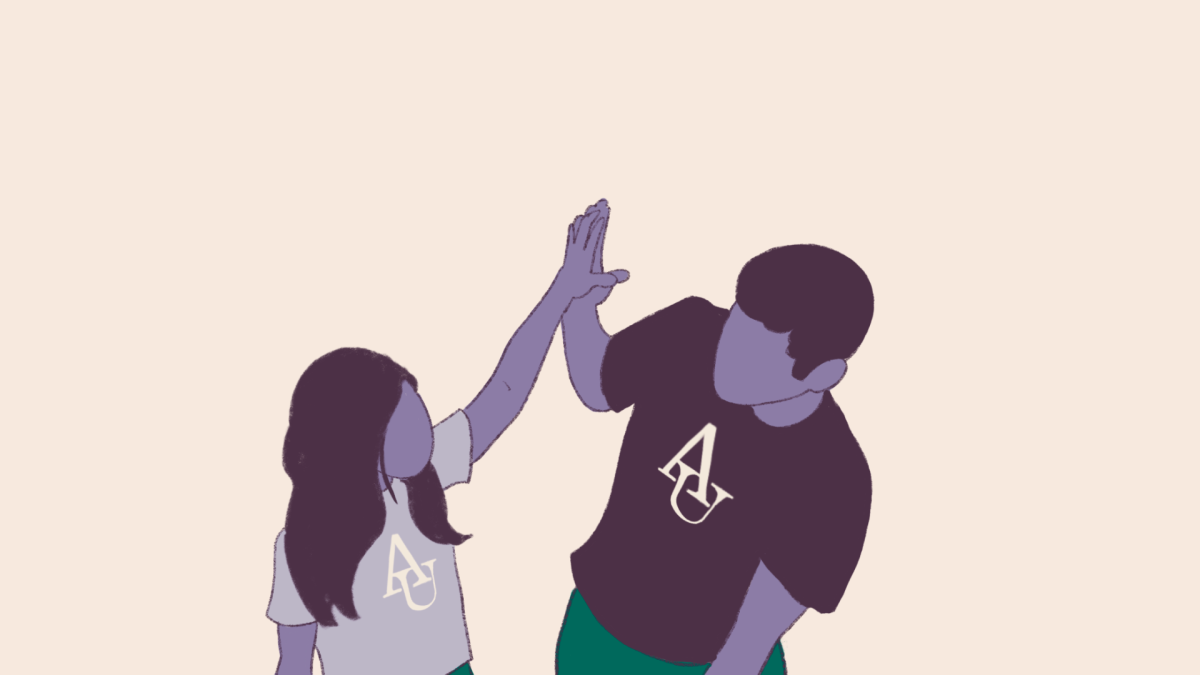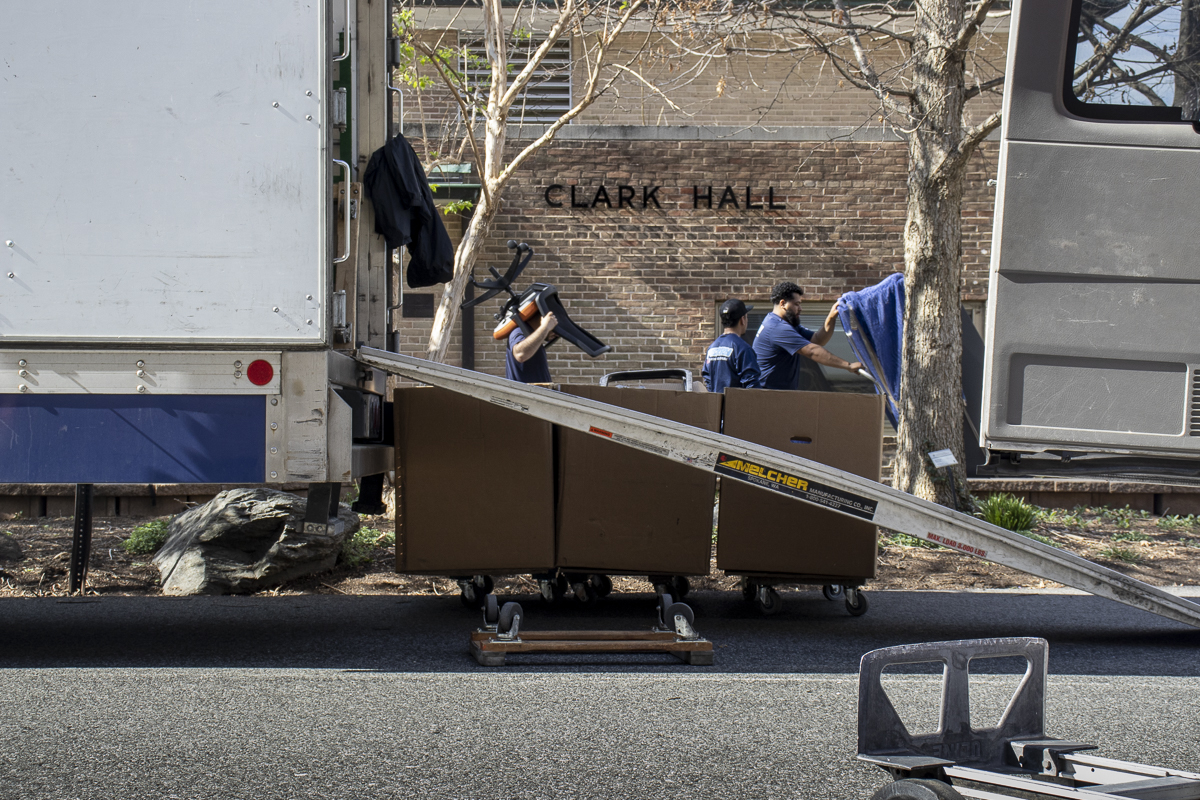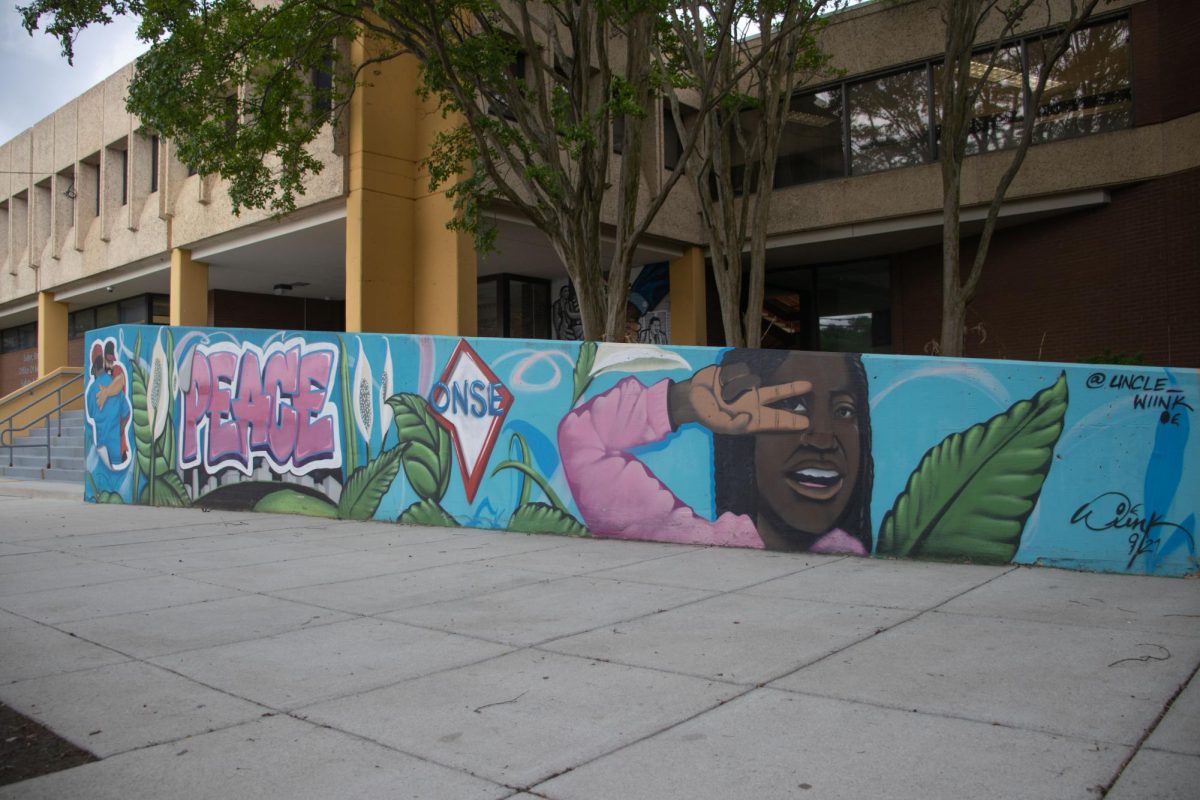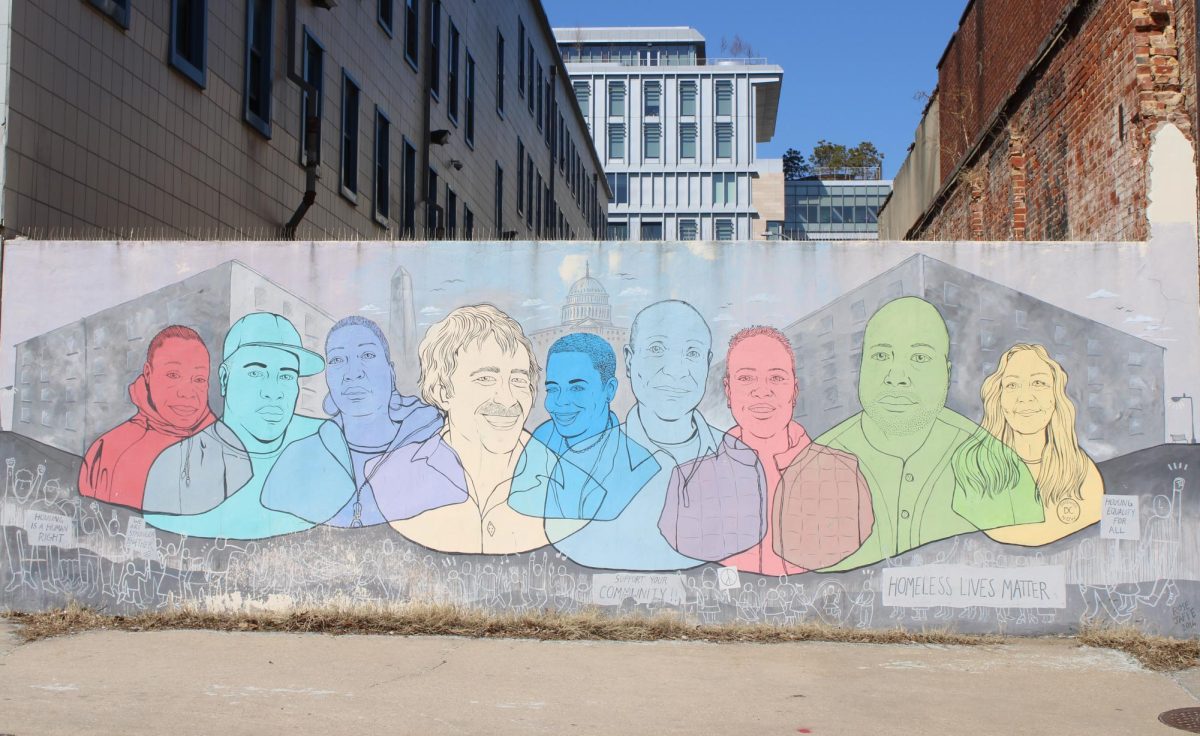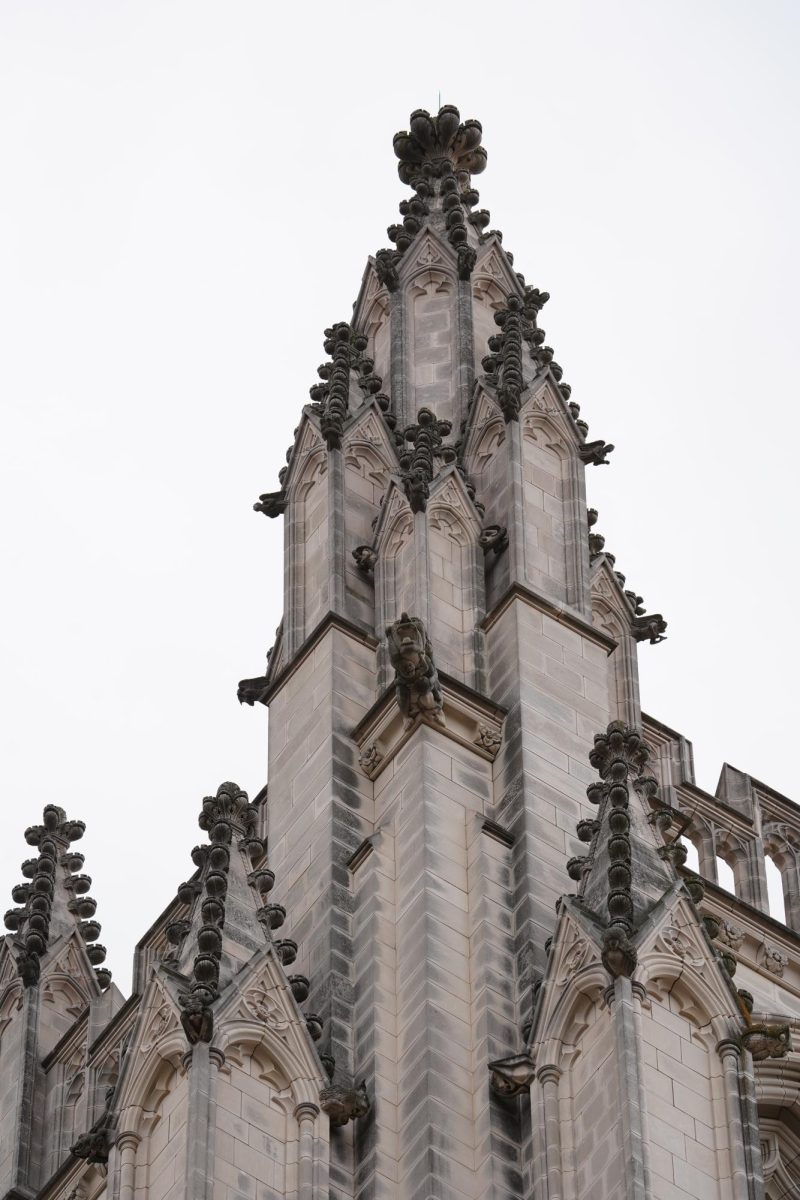Senior Andy Gardner was meeting with a professor on Feb. 14 when a fellow student and friend of his came into the professor’s office and informed them that an Immigration and Customs Enforcement officer had been spotted on campus.
It would be at least two hours before Gardener would learn the individual was not a real ICE officer.
At 1:06 p.m., Barstool American, American University’s branch of the national sports and popular culture blog, posted an image of someone in an ICE uniform with the caption, “Why is ICE crashing AU on Valentine’s Day.” Over 1,500 people liked the post as of March 31.
Around 3 p.m., Chief Financial Officer, Vice President and Treasurer Bronté Burleigh-Jones and Assistant Vice President for University Police Services and Emergency Management Phil Morse sent an email saying they confirmed with law enforcement that no official ICE operations had occurred and that the individual had no connection with the federal agency.
“We understand the heightened concerns about law enforcement activity and federal immigration policies,” Morse and Burleigh-Jones said. “Additionally, there are those in the world seeking to cre- ate discord and fear in these situations. The most important things each of us can do are to report suspicious activity to AUPD so it can be promptly investigated and avoid rushed conclusions.”
Gardner said he felt the university’s official response to the incident was too slow. He said the lack of a swift response from the university led to confusion among students and faculty alike prior to the official email from Morse and Burleigh-Jones.
“There was no communication that the guy was fake to people, which I think should have been established, like, way quicker,” Gardner said.
The sudden spread of misinformation around campus before the university’s official email is just one example of unaffiliated media organizations playing a role in informing students on AU’s campus. Sources unaffiliated to AU like Barstool American, AU Chicks and The Rival offer an alternative to the university’s affiliated student-run publications like the Eagle, AWOL and Blackprint and official university communications.
Some students said unaffiliated campus media organizations on Instagram are important to the campus information sphere for their ability to quickly relay information to students through mediums such as memes, satire and independent student journalism. Others said they’re cautious when reading unaffiliated sources.
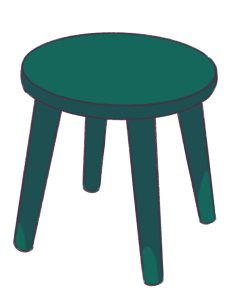
Aidan Dowell, a junior and satirical cartoonist and columnist for The Eagle, said social media is vital in informing the student body about what’s happening on campus. It allows students to consume campus information from all sources, like the university itself, university-affiliated student media organizations, unaffiliated organizations and friends, Dowell said.
“Social media is almost the whole game when it comes to campus news,” Dowell said. “Instagram is like the first line of defense where people see their news nowadays.”
According to a 2024 Pew Research Center report, over 76% of adults ages 18-29 log onto Instagram daily.
Ali Filali, a sophomore in the School of Communication, said he thinks the variety of on-campus sources helps serve students with specific information about campus news and events related to the AU community, such as recreation or club-related information.
“In terms of social life, it’ll be like the Barstool [Instagram] account and its affilifates,” Filali said.
Barstool American has over 15,000 Instagram followers as of March 31. AU Chicks, its sister affiliate, has over 7,000 followers. Both post memes and commentary and are affiliates of the greater Barstool Sports, which has affiliates at hundreds of universities.
A Feb. 5 Barstool American post featured a flyer for University President Jonathan Alger’s inauguration with the caption, “Our guy Jon has been doing god’s work off the clock.” A Jan. 16 post featured a photo of a whiteboard covered in dinosaur drawings, with the caption, “Average poli sci class.” A March 19 post from AU Chicks featured a screenshot of a food delivery service app pricing a Panera Bread sandwich at one meal swipe plus $170, captioning the post, “As if we weren’t giving enough money to the school already” with a crying emoji.
Barstool American did not respond to multiple requests for an interview sent via Instagram direct message. Two representatives from AU Chicks declined interviews.
First-year Shayne Mond said she relies on Barstool American and AU Chicks to stay updated on the latest campus news. She said she believes the organizations are sufficiently accurate as long as people balance them with other sources for some information.
“I just got here, so for events and stuff, it’s pretty much all I need to know about,” Mond said.
She said it’s important that people verify the information received from these organizations if something seems off or untrue.
“If it sounds stupid, look it up,” Mond said. “If it doesn’t look right, then you should look at a school-affiliated website.”
First-year Kayla Meredith said they think people shouldn’t fully rely on unaffiliated campus media organizations for information.
“It’s just for funsies,” Meredith said. “It’s not that deep. Just take everything with a grain of salt.”
Others, like Dowell, said unaffiliated campus media outlets have value in their independence from the university.
“I think that being non-affiliated, especially right now, is an opportunity to really get at the issues that they don’t want us to know about, like, the real things that are happening that we deserve to know about and talk about and discuss,” Dowell said.
John Watson, an associate professor of journalism at AU, said campus-affiliated student-run publications rely on the university financially and must abide by the university media board’s rules. Watson said unaffiliated student-run publications don’t receive any funding from the university, which means they are exempt from any of the university’s regulations.
“I don’t know how they would fund themselves, but apparently they do have a funding system independent of any university,” Watson said. “That’s what gives them their independence.”
Watson, who serves as a faculty advisor for The Eagle, said that although unaffiliated organizations bring the benefits of independence from university funding and regulation, they also have no incentive to follow journalistic principles common to professional journalism organizations.
“They could be as rigorous as The Eagle in terms of trying to follow journalism standards, or they could be like The National Enquirer,” Watson said. “They could do whatever they want, and there’s no indication necessarily that they will do actual journalism.”
The Rival, an unaffiliated student-run publication with over 1,800 Instagram followers as of March 31, publishes satire, youth opinion and campus news as an unaffiliated student news publication. Sophia Romano, The Rival’s editor-in-chief, said the publication’s independence from the university allows it to dig deeper in its commentaries on campus life, the student body and the university.
“We can say whatever we want, for the most part, we can talk very pointedly towards the administration or American University,” Romano said. “We can cover some topics that might not fly in a pitching room in these campus-affiliated rooms. You know, just a lot more freedom of expression.”

The publication is one of 17 affiliates at universities across the country, according to its LinkedIn page. It offers an alternative to the more sports and meme-centric unaffiliated organizations like Barstool American, Romano said.
“I think The Rival’s much more laid back, chill, there for a laugh,” Romano said, “Whereas Barstool, you get more of a chauvinist male ‘we love sports’ and s—like that.”
A Jan. 22 Rival article by Matt Romano, “American University for Dummies,” dissects and pokes fun at different aspects of the university, such as its political student body and the unstereotypical college experience it offers.
Another, published May 29, 2024, features the full transcript of a lunch and learn event hosted by AU’s Antiracist Research and Policy Center. The event featured a dialogue between a panel of students and experts in history, social movement theory and decolonial theory about “pro-Palestine student organizing through an academic perspective.”
Watson said the top priority for responsible student-run organizations, whether affiliated or unaffiliated, is publishing information they believe will best inform audiences, regardless of the tone it portrays its subjects.
“In some respects, the student publication should treat the university the way the Washington Post treats the Congress, White House and Supreme Court — important sources of news, but the news organization owes no loyalty to those larger government institutions,” Watson said. “In the same sense, the student publication should owe no loyalty to the university as an institution, but a duty to serve the human beings, students, faculty and staff at the university.”
Despite the prominence of unaffiliated sources in the dissemination of information, Dowell said different students consume information differently.
“There’s a big disparity between people who know a lot and care a lot about what’s happening on campus and people who are sort of blissfully uninformed and don’t seek out that information,” Dowell said.
Cooper Leigh, a freshman, said he utilizes the university’s official communications on its official social media pages, but mainly its emails, to stay updated on campus happenings.
“I do follow some of the university accounts, but mostly it’s the emails I get,” Leigh said.
Of the 13 students asked about university communications, 10 said they rely on official communications as a source of information. Sophomore Katie Hamilton said she reads these messages frequently but doesn’t necessarily trust them the most out of all the sources available to her.
“They’re just the ones that I see the most,” Hamilton said.
Hamilton said she often checks her email for the university’s in-depth updates after first seeing AU’s updates on her social media feed.
Jonathan Wisong, a student in the School of International Service, said he appreciates how the university communicates updates to the community.
“They do a pretty good job,” Wisong said. “They send out emails when they’re increasing, like, their energy initiatives and stuff.”
But others are more critical of the university’s approach to communications. Matthias Jaylen, a first-year in SOC and a writer for The Eagle, said he wishes the university’s official communications were more transparent and painted a fuller picture of campus issues. That leaves students looking for more, he said.
“It’s really on them to go out and find that information because I don’t think, a lot of the time, the administration does a super great job of communicating things to us,” Jaylen said.
Elizabeth Deal, the university’s deputy chief communications officer, said AU prioritizes accuracy and nuance over expediency in its official communications, especially in situations where nuance and the fuller picture are imperative for the safety of the community.
“We would prefer to have all the information than send something out on a social post in five minutes because what we are responsible for doing is to keep our community informed,” Deal said. “I trust the folks in leadership, but in AUPD in particular, to let me know when there is expediency necessary versus when we have time to be able to put something together and then send something out.”
The university communicates information to students through multiple channels, each with a distinct purpose, Deal said. She said Alger’s office updates the community with information it thinks it would be best to communicate, the Board of Trustees office sends out updates from its quarterly meetings and the Office of Student Affairs sends student-centric campus information to the student body. Deal’s specific team is responsible for messages to the community.
Junior Abigail Frierson said university officials haven’t communicated issues like their consideration to arm AUPD effectively. She said that fosters skepticism among students about their reliability and how they choose what information to relay. Before the Board of Trustees announced the decision not to arm AUPD, Frierson said the lack of communication forced stu- dents to piece together the whole picture around what was happening with the decision.
“There’s a lot that the school, specifically, the Board of Trustees, hides from us,” Frierson said. “We haven’t been able to get into contact with anyone from the board to find out what’s going on. Like, there isn’t anything being said about this. It’s all just being communicated between friends trying to organize action to find out what’s going on.”
Deal said the university hosted various forums and conducted surveys to get the most comprehensive understanding of student opinions on discussions around arming AUPD in an effort to listen to student voices and be as transparent as possible.
“I’m sorry to hear that, because that makes me unhappy,” Deal said. “I know that [for] the people involved at the root of that effort, transparency is the main point of it.”
Ariana Becemberg, a senior in SIS, said student-run organizations and their social media posts offer a level of accessibility, clarity and swiftness on campus news that is missing from the university’s official communications.
“It’s just easier to post something that has, like, a sentence, instead of writing a full email, getting it approved in a signature,” Becemberg said. “I think it’s just faster to get to students.”
Junior Cynthia Reyan said it’s vital that people are conscious of who is behind their chosen sources and balance their media diet accordingly.
“If it’s communicating information that’s relevant to student life, students are going to have a much more relevant say in that,” Reyan said.
Despite the potential shortcomings either type of source may bring, Filali said it’s important to have a balanced campus media diet — affiliated and unaffiliated sources. He said that with social media, it’s essential that people know who’s behind their sources.
“Stay engaged,” Filali said. “Everybody’s scrolling, so if you’re scrolling, just make sure what you’re looking at is a decent name if you’re concerned with the community.”
This article was originally published in Issue 36 of AWOL’s magazine on April 15, 2025. You can see the rest of the issue here.
Editing by Will Sytsma, Ava Ramsdale, Julia Cucchiara, Ben Austin, Bailey Bish, Kalie Walker, Stella Camerlengo, Caleb Ogilvie, Grace Hagerman and Alexia Partouche.



